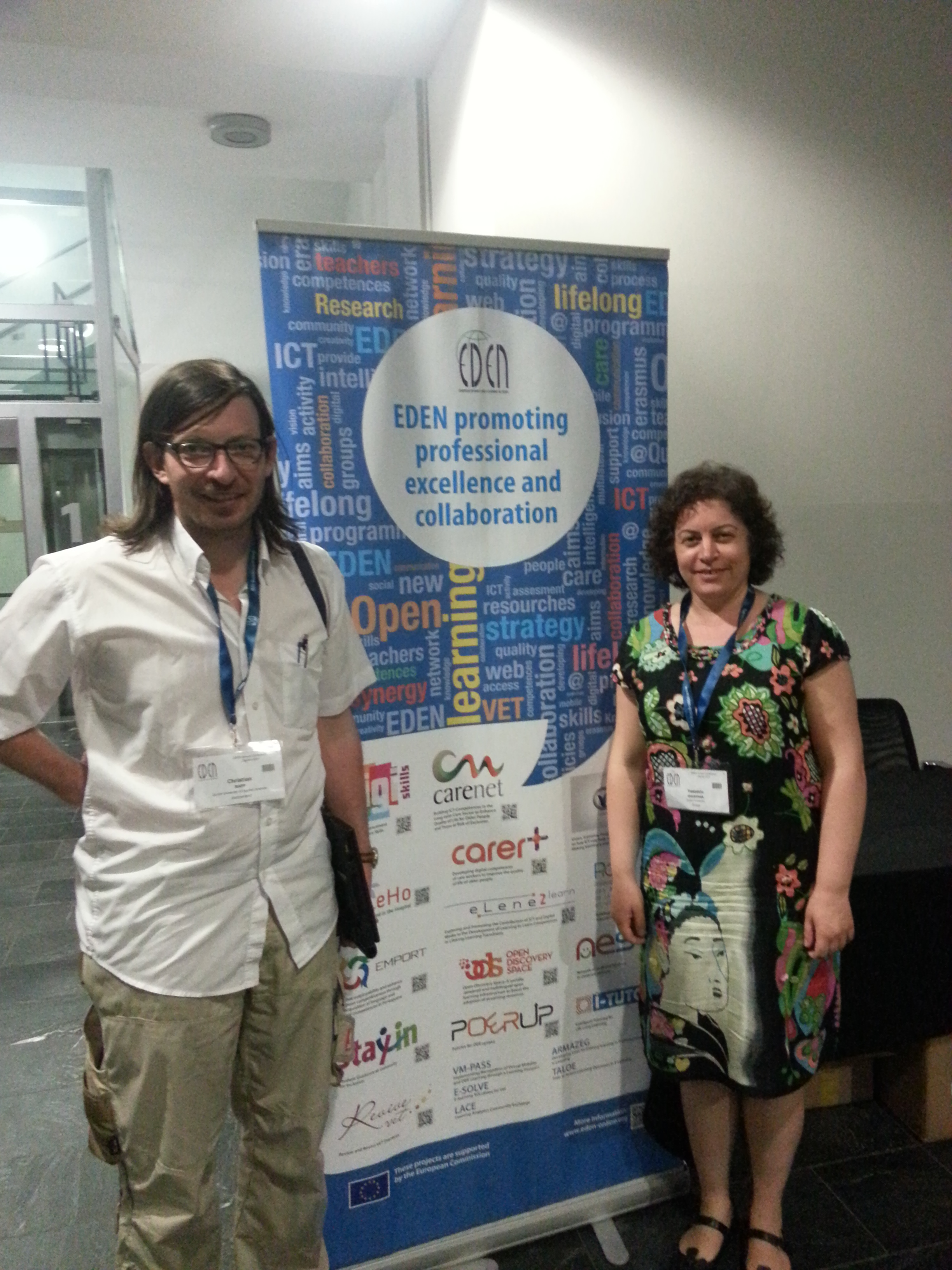Gulbahar, Yasemin; Rapp, Christian (2014). Development of a Strategy for Social Media Usage in Higher Education: From Education to Employment and Meaningful Work with ICTs. Peer reviewed Paper.. European Distance and E-learning Network (EDEN) 10-13 June 2014. Zagreb, Croatia. . Peer reviewed.
Social media (SoMe) is everywhere in our daily life. People have started to use social media in almost every aspect and field of life, however, limited attention has been paid so far to studying the potential of social media for educational purposes. So an important question is “How to use social media efficiently for teaching-learning processes?” To answer this question, standards or strategies should be defined for a more effective and efficient social media usage in an educational context. Hence, being a part of an international research project , this article aims to develop a strategy for social media usage in higher education. Therefore, qualitative measures, namely data from literature, web searches and together with interviews of instructors from two countries formed the scientific data on which our framework will be based.
Results of the case studies
For the Turkish case (N=12), two universities, namely Ankara University (AU) and Middle East Technical University (METU), were selected as sample cases. It might be useful to emphasize one point here, that AU has complete online official programmes, so all the instructors and students have experience in both e-learning and blended learning, whereas METU uses social media and Web 2.0 tools to support traditional instruction and uses only blended learning. For the German case (N=10) similarly two universities were selected. It was found out that the University of Konstanz has no regular online courses, but usually supplements presence teaching with the Ilias Learning Management System (LMS). At the Technical University of Berlin (TUB), 6 instructors were interviewed. TUB uses Moodle as their LMS while having various online learning opportunities. Based on the findings, it can be concluded that there are no strategies regarding social media use in the sample universities.
Results of literature and web search
Although there are some universities which have already developed their own strategy and started implementation like Vanderbilt University, University of Cincinnati and Tufts University, it was found that none of the goals set by the universities address the use of social media in teaching-learning processes. Hence, it is obvious that universities’ social media strategies have been developed for guaranteeing “web presence” of the university and having different goals than serving for supporting educational processes, and other strategies are studies that are promising from a business point of view which will be addressed in the following section.
Framework for Social Media Strategy
From this point of view, our social media strategy will be the first attempt for defining a strategy to enhance educational use of social media with a focus on higher education institutions. On the base of the emerging themes of research articles, our research findings and suggestions made by instructors, and some templates provided from different universities, a framework for a possible SoMe Strategy has been developed by relating business scopes with educational aims. The framework consists of 8 dimensions: (1) Identity of Target Audience, (2) Name & Design, (3) Measuring Success-Presence, (4) Teaching Styles, (5) Learning Opportunities, (6) Learning Goals, (7) Assessment & evaluation-Tracking Tools, (8) Content Types – Sharing.
Conclusion
This framework is provided to reveal possible determiners of an effective implementation of SoMe in educational contexts. Researchers hope that these findings will shed light on this area for leaders of universities for implementing in SoMe Strategies and will also be used to drive a Social Media Toolkit, currently being developed within the international research project, which is aimed to be a guide for instructors in their innovative teaching implementations.
Ayrıntılı bilgi için: www.eden-online.org/system/files/Annual_2014_Zagreb_BOA.pdf


